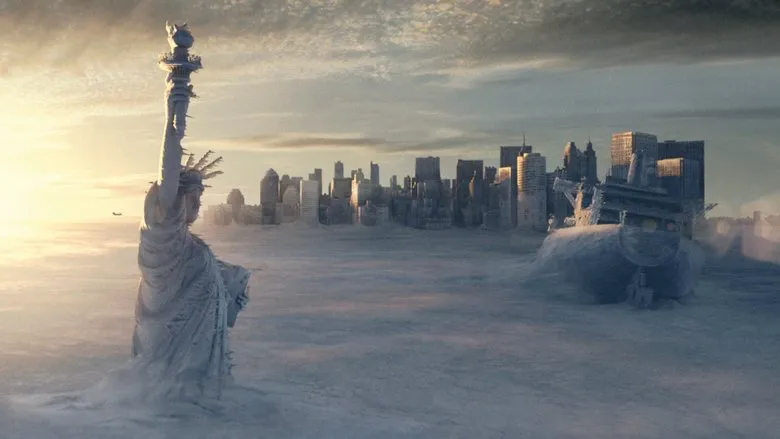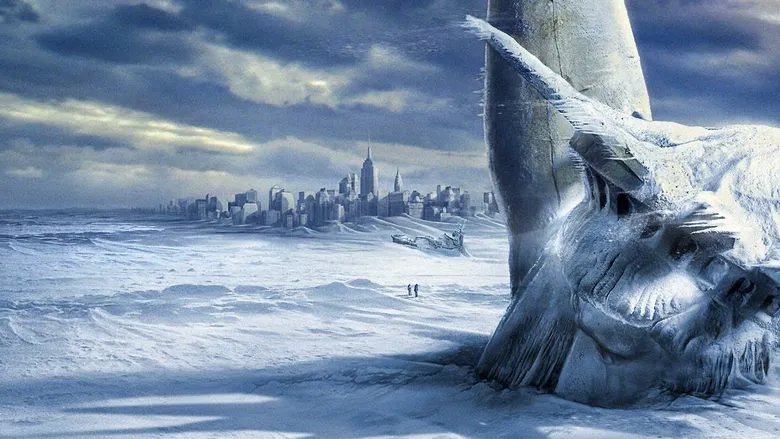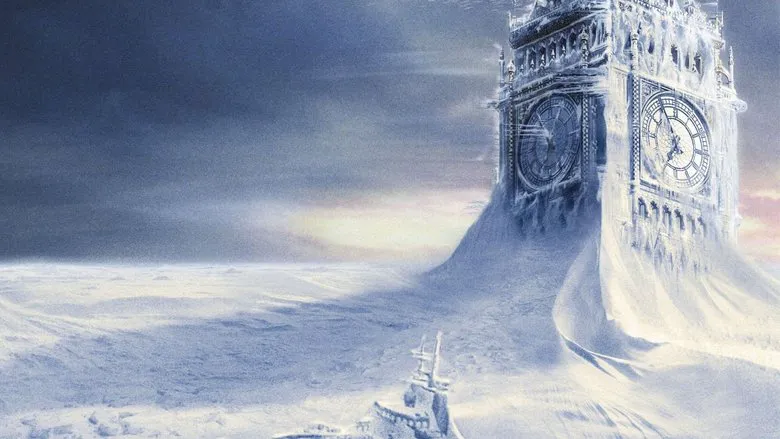The Allure of Disaster Films: More Than Just Spectacle
Disaster movies have a magnetic pull on audiences. From “The Towering Inferno” to “Volcano,” “Jaws,” “Earthquake,” and “Titanic,” we’re captivated by the spectacle of destruction. Watching planes crash and ships sink from a safe distance allows us to experience intense emotions while comfortably seated with popcorn. These films are primarily about spectacle, a thrilling ride where everything else serves as either exposition or a feel-good finale. The main event is always the grand-scale disaster itself.

However, some filmmakers successfully blend the spectacle with artistic elements: compelling characters, talented actors, psychological depth, and even a touch of serious social commentary. This was the case with the American “Titanic” and the Russian film “Air Crew.” These films have greater staying power, remembered fondly by audiences. The rest is often just fleeting entertainment.
The Comfort of Controlled Fear
It’s often said that disaster movies scare us, but that’s not entirely true. American disaster films often follow a predictable formula: a natural or technological catastrophe is met by a strong hero – a brave firefighter, an experienced sailor, a police officer, or simply a courageous individual who rallies others in the face of adversity. Viewers leave the theater pleasantly stirred, reassured that someone (a person, society, the government, the country) will come to the rescue when needed.

This inherent optimism distinguishes American cinema from some contemporary films, which, in the name of poorly understood realism, deny viewers any hope.
Roland Emmerich’s American Obsession
If Roland Emmerich had filmed “The Day After Tomorrow” at “Mosfilm” and destroyed St. Petersburg instead of New York City, he might have been accused of hating all things Russian. But he made the film in Hollywood, gleefully tearing down the iconic “Hollywood” sign and devastating two of America’s largest cities. No one reminded him that he was German or suspected him of hating America. This lack of suspicion reflects a society confident in itself, unlike one burdened by complexes.

Emmerich has a history of destroying America. He stomped on it with “Godzilla” and unleashed aliens upon it in “Independence Day.” Now, learning from those successful blockbusters, he plunges it into a more realistic disaster: global warming, melting glaciers, and the resulting floods and a new ice age that engulfs the Northern Hemisphere. He seems unconcerned with the fate of his native Germany or Siberia, one of the epicenters of the global catastrophe. But it’s foolish to accuse him of negligence. He’s making a film designed to amaze, and flooding Manhattan is undeniably more impactful than flooding a Siberian village, something we see on the news every spring.
Suspending Disbelief for the Sake of Spectacle
We shouldn’t dwell on why New York is already flooded and frozen while Washington, D.C., still has lights on in its offices. Or why all the country’s television stations are still broadcasting, and residents still have electricity to watch the chilling reports. Or why the residents of frozen California find green palm trees just across the border in Mexico, as if vigilant customs officers turned back the global ice age at the border.
These minor inconsistencies fade in the face of the stunning computer-generated landscapes: a sudden typhoon destroying Los Angeles skyscrapers, a giant wave engulfing Manhattan, and incredibly menacing clouds gathering into cyclopean funnels with swirling, boiling edges. It’s not entirely fantasy – Discovery Channel viewers might mistake the special effects for actual footage of real tornadoes and storms.

Emmerich’s film leaves you with a strong sense of the fragility of what we call civilization. Even the doubts that arise during the screening highlight this fragility: in reality, such a catastrophe wouldn’t have a happy ending, and therefore, there would be no film to make. Humanity would be wiped out like a fly – where would the plot go from there? Cinema is as artificial as theater.
A Warning for Tomorrow
On the other hand, global warming is a real process. The uncertainty surrounding its consequences is real. The explosive growth of alarming trends is real. The film cares about a future that is genuinely threatened. It makes you think about what to do before the day after tomorrow arrives.
The film’s protagonist, meteorologist Jack Hall (Dennis Quaid), warns political leaders about the danger, but they dismiss him, saying they have more important things to worry about. The film’s critique of neglecting science resonates, especially in today’s Russia, even more so than in the United States. Equally important, despite its somewhat simplistic presentation, is the final theme: the need to unite in the face of global problems.

I don’t know how Roland Emmerich sees himself as a filmmaker, but I wouldn’t consider him an artist or expect great works of high art from him. In the vast, diverse world of cinema, he’s like a builder of themed amusement parks, where people not only enjoy themselves in haunted houses but also gain some useful knowledge about the universe. It’s a place where relevant slogans are scattered along the pathways, reminding us that we are human beings and that Earth is our shared ship. And we are all guilty of the fact that this ship is losing its buoyancy more noticeably every year.

Of all possible plots, the film chooses the most standard and simplistic, but also the most relatable: a son’s unwavering faith in his father and a father’s unwavering determination to help his son. Americans never tire of emphasizing family values, understanding the family as both a unit of society and society as a whole. And it must be admitted that, despite the banality of these values, they are a source of strength and hope. The fact that Emmerich’s competent film is watched by millions, and his anxieties and values are subtly instilled in them, makes such cinema more important, in my opinion, than not only the corrupting “Brigada” but also the destructive “Taurus.”
If Emmerich had presented his social message as an arthouse puzzle, no one would have noticed his concerns in the empty theaters. Mass cinema, like building blocks, is made up of basic concepts because real life is made up of these concepts. Everything else is just fleeting entertainment.